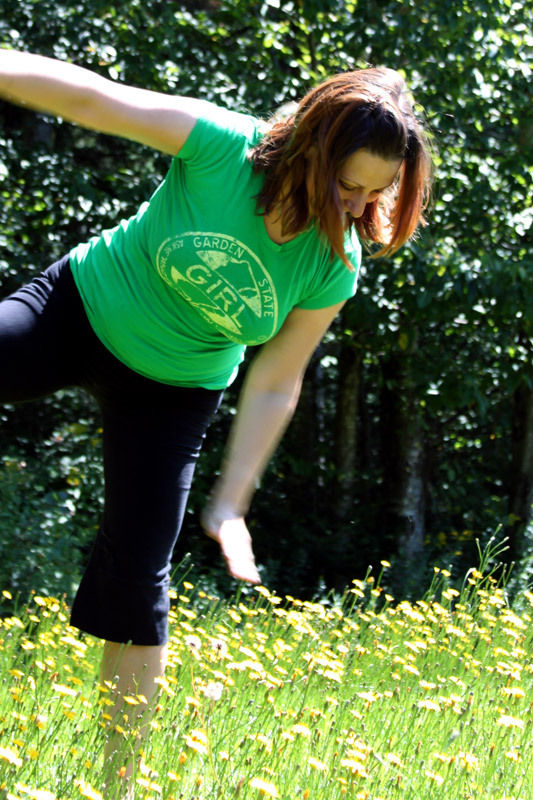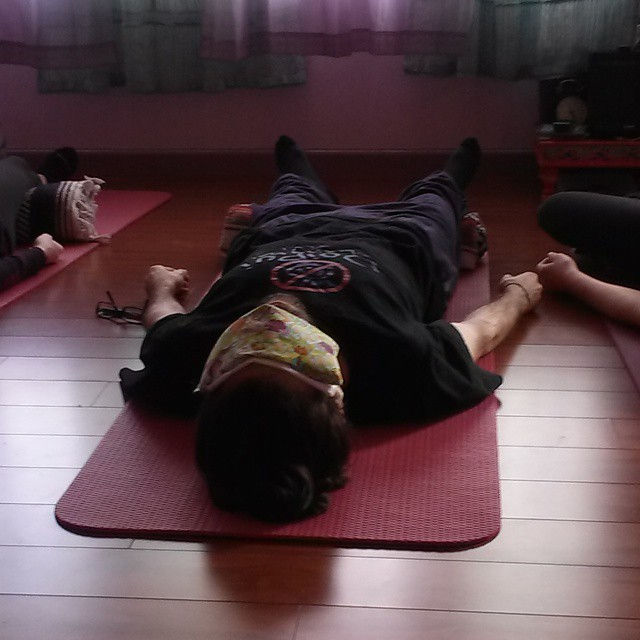Sex And The Yogi
- Oct 17, 2017
- 4 min read
I remember the looks on the faces of the women in my teacher training when we were sitting in session discussing the 4th Yamma Brahmacharya. In our training we used the common translation of ‘celibacy’ or ‘chastity’ and it didn’t sit well with alot of us.
We were liberated women, powerful, and comfortable with our sexuality. For some of us, it took a few years to finally get to this comfortable place and now in teacher training we were being told to hold back and conserve our sexual energy. It felt like we were being put into chastity belts and told to act like "proper" ladies. During this training it was easy to not be tempted as we were almost all hetro/cisgenderd and this was a training devoid of men. We could manage to restrain ourselves for the month long residential training and keep our urges under control. Besides, there was so much else to work and focus on who really had time for anything as complicated as sex.
Once I gained distance from the training and developed a bit more maturity as a Yogi I dove more into this Yama using Reverend Jaganath Carrera's translation of the Yoga Sutras. Through my continued study I learned that the term was deeper than just chastity and had more to do with all energy- "To one established in continence, vigor is gained" [Sutra 2.38]. Jaganath, my spiritual Guru, explained in his book that this was a code of conduct where the student has restraint and moderation in all things.
What a great lesson for us to revisit today. As I write this blog post the scandal in Hollywood over a producer who was using his position of power to coerce and manipulate women into sex is dominating the headlines. All over social media we see women and some men outing themselves as victims and survivors of sexual harassment with the "me too" post leading me to question "who hasn't?".
It is the same story that we have seen in the world of Yoga for ages now with teachers and leaders in our field using their positions of power for the same base gratifications. The degrees of transgression vary from something as seemingly benign as a teacher developing a "healthy" relationship with a student to more troubling accounts of rape and manipulation. I don't think it is necessary to rehash all the sordid details of these events but I think it is valuable for us as teachers and Yogis to go back to our cushions and spend a bit of time in self reflection (Svadhyaya) on this particular topic. After all, what ever came out of that 2013 article that the Budokon Yoga system creator published and caused so much commotion? (FYI, I did love the response here but this was written in 2013.)
So now I go to my cushion and reflect on a few basic questions because I think we all need to get back to this again:
What is my personal Code Of Conduct as a teacher?
Do I live by what I believe?
Am I acting with restraint and being mindful in my actions?
Do I make it clear in my language (verbal and body) what I believe?
Am I supportive of my teacher community and promote this code?
How do I respond when I see someone breaking "the rules"?
If you don't know this about me let me tell you, I am a big believer in the value of rules. They help set up boundaries and clear out confusion. I don't see them as restricting or suffocating. I see them as helpful and necessary. I wish that the Yoga Alliance had been a bit more direct in their language in the February 1, 2016 Code of Conduct on this topic. But because they have failed to be firm in this area and nobody else has really jumped up to push for one (although in the June 2017 Times Article: Yoga Teachers Need a Code of Ethics the author noted that Jack Kornfield's Spirit Rock community posted one) it falls to me to develop my own clear outline for conduct in my classes, massage sessions, sales, retreats, and plant sessions.
I believe that Yoga teachers are leaders in our communities and we hold sacred space for students who come to us for classes or teachings. Any ambiguity in our conduct when it comes to sex and relationships is dangerous and not useful. Humans can suck (yes even Yoga teachers) so having clear guidelines not only helps the teachers but it helps the students know what is within normal bounds and what really is not called for. Being upholders of these ethics gives the community someplace to turn to for support when the time comes to expose the transgressions.
Let's hope that there isn't a need for a "Me Too" exposure exercise for the Yoga community and that we can really live up to our ideals.











Comments